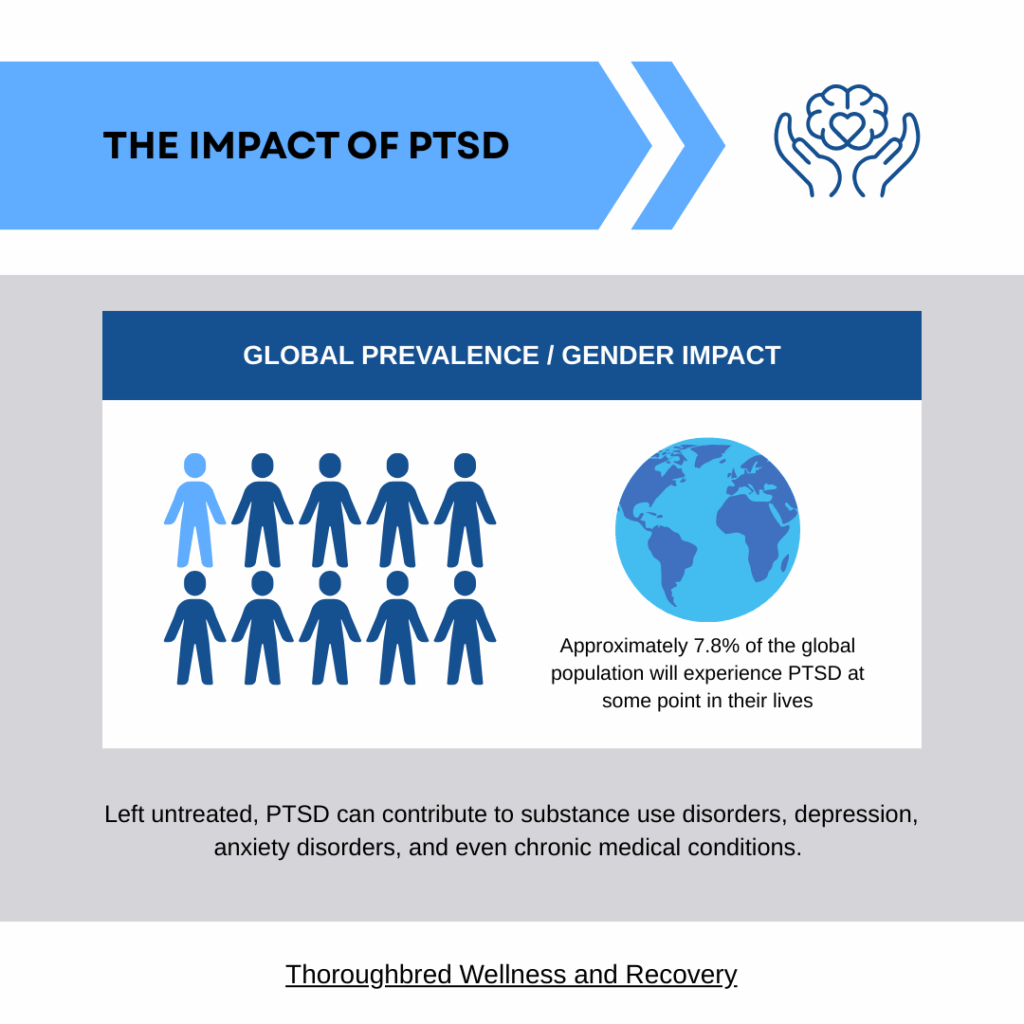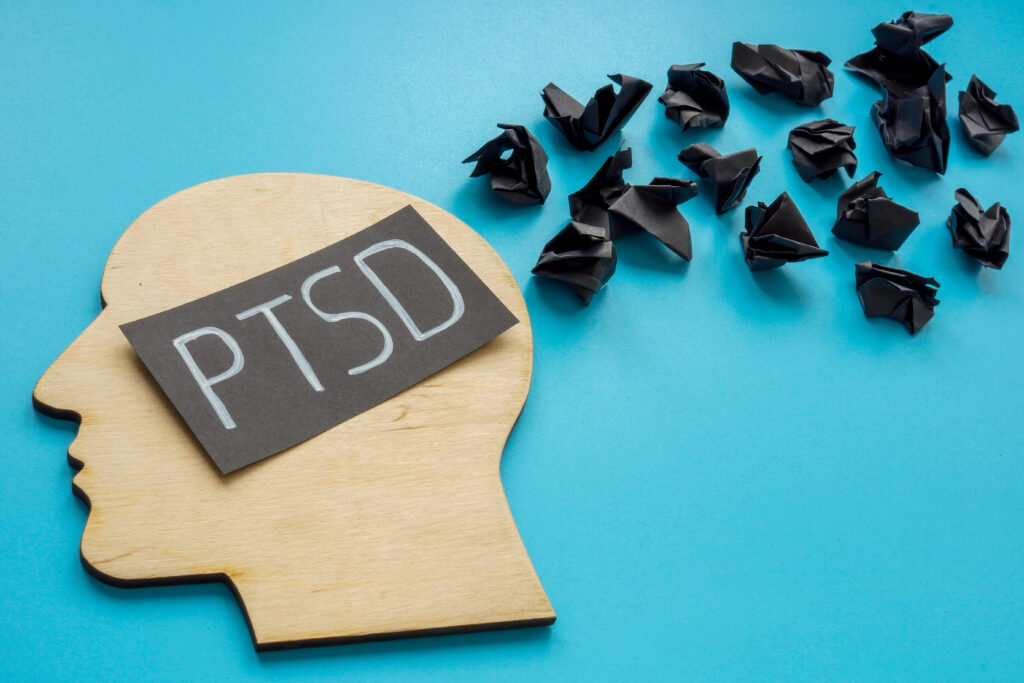Understanding PTSD: More Than Just a Diagnosis
Post-traumatic stress disorder is often misunderstood. It’s not simply a reaction to stress, nor is it a sign of weakness. PTSD is a complex mental health disorder that develops after someone experiences or witnesses a traumatic event.
These events can range from natural disasters and serious accidents to violence, abuse, or the sudden loss of a loved one. For some, the trauma may be a single incident. For others, it may be the result of prolonged or repeated exposure to distressing situations.
The symptoms of PTSD are as varied as the people who experience them. Some individuals are haunted by flashbacks, vivid nightmares, or intrusive memories that make it feel as though the traumatic event is happening all over again.
Others may find themselves constantly on edge, easily startled, or struggling with overwhelming anxiety. Avoidance is common—people may steer clear of places, people, or activities that remind them of what happened.
Emotional numbness, difficulty trusting others, and a sense of detachment from the world are also frequent companions of this mental illness.
It’s important to recognize that PTSD doesn’t just affect the mind; it can have profound effects on physical health, relationships, and overall quality of life.
Left untreated, PTSD can contribute to substance use disorders, depression, anxiety disorders, and even chronic medical conditions. That’s why seeking effective treatment is so crucial—not just for the individual, but for their family members and loved ones as well.
The Many Faces of Trauma
Trauma is deeply personal, and no two people experience it the same way. At Thoroughbred Wellness and Recovery, the treatment team knows that the types of trauma causing PTSD are varied.
Some guests have survived natural disasters; others have endured violence, military combat, or childhood abuse. Many have faced traumatic events while working as first responders or healthcare professionals. Others have been affected by accidents, sudden loss, or community violence.
Adolescents, adults, and seniors can all develop PTSD. The condition doesn’t discriminate, and neither does the care at Thoroughbred Wellness and Recovery.
Our mental health professionals recognize the unique ways trauma shows up across different ages and backgrounds. We make sure every treatment plan fits the individual’s needs and life story.
Recognizing the Symptoms of PTSD
Understanding the symptoms of PTSD is the first step toward healing. While everyone’s experience is unique, there are several hallmark signs that may indicate the presence of post-traumatic stress disorder.
These include:
- Re-experiencing symptoms: Flashbacks, nightmares, and intrusive thoughts that bring the traumatic event back to life.
- Avoidance: Steering clear of reminders of the trauma, whether they are people, places, or activities.
- Negative changes in mood and thinking: Persistent feelings of guilt, shame, or hopelessness; difficulty remembering aspects of the traumatic event; feeling detached from others.
- Hyperarousal: Being easily startled, feeling tense or “on edge,” having trouble sleeping, or experiencing angry outbursts.
It’s not uncommon for people with PTSD to also struggle with other mental health issues, such as depression, anxiety disorders, or substance abuse. This is known as dual diagnosis, and it requires a comprehensive approach to treatment.

Our Wellness and Recovery Approach
Serving the greater Atlanta, GA, area, Thoroughbred Wellness and Recovery is more than a treatment center. We provide a community dedicated to helping individuals rediscover hope, resilience, and authentic freedom.
Accredited by The Joint Commission, we are recognized for our commitment to the highest standards of behavioral health and mental health care.
Evidence-Based Treatment Programs
Extensive research and clinical guidelines support effective treatment for panic disorder. The most widely recommended evidence-based treatment programs include the following.
- Accelerated Resolution Therapy (ART) is a short-term psychotherapy that uses eye movements and voluntary image replacement to change how distressing memories are stored in the brain. It’s often used to treat trauma, anxiety, and depression, offering rapid symptom relief.
- Cognitive Behavioral Therapy (CBT) is the gold standard for treating panic disorder. It helps people spot and challenge the distorted thoughts that trigger panic attacks. Clients learn practical coping skills, reduce avoidance behaviors, and break the cycle of anticipatory anxiety, panic, and agoraphobia.
- Dialectical Behavior Therapy (DBT) is for those who struggle with emotional regulation or haven’t found relief with CBT alone, DBT offers extra tools to manage intense fear and physical symptoms. DBT focuses on mindfulness, distress tolerance, and interpersonal effectiveness. It helps guests stay grounded during panic attacks and navigate daily life with more confidence.
- Equine Therapy, also called equine-assisted therapy, this method involves guided interactions between guests and horses to promote emotional growth, self-awareness, and healing. It’s helpful for trauma, anxiety, behavioral issues, and developmental disorders. Equine-assisted therapy offers a unique chance to build trust, confidence, and emotional regulation in a calming, natural setting.
- Group and Family Therapy connects guests with others who understand panic disorder can be deeply healing. Group therapy creates a safe space to share experiences, pick up new coping strategies, and build a supportive community. Family therapy helps loved ones understand the condition, improve communication, and strengthen relationships—key factors for lasting recovery.
- Holistic and Experiential Therapies like yoga, mindfulness meditation, breath work, fitness, and art therapy to support overall wellness and quality of life.
- Rapid Resolution Therapy (RRT) uses guided imagery, storytelling, and hypnosis-like techniques to quickly clear emotional effects of traumatic events. It also helps change problematic behaviors or beliefs.
- Trauma Therapy covers a range of techniques designed to help people process and heal from trauma. These include talk therapies like CBT or EMDR, somatic therapies, and mind-body approaches that reduce trauma symptoms and improve well-being.
Levels of Care: Meeting You Where You Are
Panic disorder doesn’t look the same for everyone. Some people need intensive daily support, while others do better with flexible, part-time treatment.
Thoroughbred Wellness and Recovery offers a full continuum of care tailored to each guest’s needs and daily routines. Some of our programs include the following:
- Partial Hospitalization Program (PHP) is a structured, day-long treatment that provides medical and therapeutic support. It’s designed for those who need intensive help but don’t require 24/7 inpatient care.
- Intensive Outpatient Program (IOP) allows guests tp attend several hours of therapy each week. This setup lets them keep up with work, school, or family commitments. It’s ideal for people moving down from higher levels of care or those needing more than standard outpatient support.
- Outpatient Treatment involves weekly or biweekly therapy sessions and medication management. It suits individuals with stable symptoms or those stepping down from IOP or PHP.
Why Choose Thoroughbred Wellness and Recovery for PTSD Treatment in Atlanta?
There are many reasons why individuals and families in Atlanta and throughout Georgia choose Thoroughbred Wellness and Recovery for PTSD treatment.
Our commitment to evidence-based care, innovative therapies like equine therapy, and a holistic approach to wellness set it apart from other treatment facilities.
Clients receive individualized treatment plans, access to a full continuum of care, and the support of a dedicated treatment team.
Most importantly, Thoroughbred Wellness and Recovery believes in the possibility of healing. No matter how long you have been struggling, or how many times you have tried before, there is hope.
Recovery is not just about managing symptoms—it’s about reclaiming your life, your relationships, and your sense of self.

The Healing Power of Equine Therapy
At the heart of Thoroughbred Wellness and Recovery’s PTSD treatment program lies equine therapy. Horses are incredibly sensitive creatures, able to sense human emotions and respond in ways that build trust, empathy, and self-awareness.
For many who’ve faced trauma, traditional talk therapy can feel intimidating or just plain overwhelming. Equine therapy offers a different path—one that stays rooted in the present moment and comes without judgment.
In these sessions, guests work alongside trained therapists and gentle horses in a safe, natural setting. It’s not about riding, but about forming connections, learning to communicate without words, and developing coping skills that carry over into daily life.
Horses reflect human emotions, giving immediate feedback and chances to grow. For those who find it hard to put feelings into words, equine therapy can truly be transformative.
Research shows equine therapy helps reduce PTSD symptoms, improves emotional regulation, and boosts overall well-being. At Thoroughbred Wellness and Recovery, this approach blends with other proven treatments to create personalized, comprehensive care.
The Role of Coping Skills and Support Groups
Healing from PTSD is not a linear process. There are ups and downs, setbacks and breakthroughs. One of the most important aspects of effective treatment is learning practical coping skills that can be used in everyday life.
At Thoroughbred Wellness and Recovery, guests are taught a variety of strategies to manage anxiety, regulate emotions, and respond to triggers in healthy ways.
Support groups are another vital component of the treatment program. Connecting with others who have faced similar challenges can reduce feelings of isolation and provide a sense of belonging. These groups offer a safe space to share experiences, celebrate progress, and learn from one another.
Addressing Co-Occurring Disorders
PTSD rarely exists in isolation. Many people who seek help at Thoroughbred Wellness and Recovery are also dealing with other mental health disorders, such as depression, anxiety, or substance use disorders. This is known as dual diagnosis, and it requires an integrated approach to care.
Our dual diagnosis treatment program is designed to address both PTSD and any co-occurring conditions simultaneously. This holistic approach ensures that all aspects of a person’s well-being are considered, leading to better outcomes and a higher quality of life.
A New Chapter Begins
PTSD can feel like an unending storm, but with the right support, it is possible to find calm, clarity, and connection once again. At Thoroughbred Wellness and Recovery in Atlanta, GA, the journey to healing is grounded in compassion, expertise, and the transformative power of equine therapy.
If you or a loved one is living with the effects of trauma, know that help is available, and a brighter future is within reach. Call us at 770-564-4856 to learn more.










